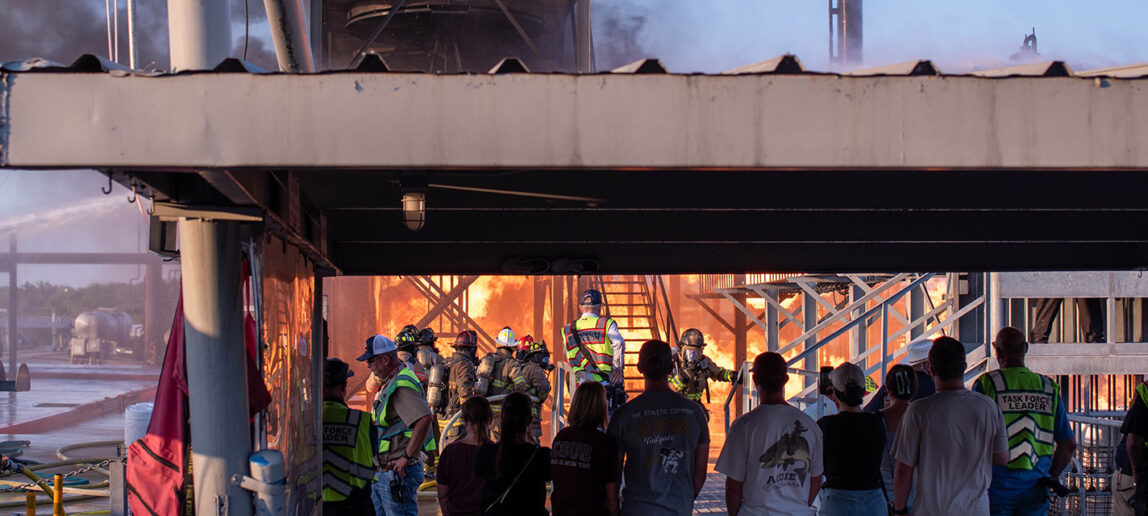Texas high schoolers explore climate & disaster response careers at Camp DASH
Most people who end up in public service careers like emergency management, public health and urban planning, land there completely by accident, according to Michelle Meyer, director of the Hazard Reduction and Recovery Center at the Texas A&M School of Architecture.
“As climate change increases, disasters happen more and vulnerable populations face the worst impacts,” she said. “The workforce needs to be larger and with people from a variety of backgrounds, but most young people don’t know about these career opportunities.”
Unlike professions in medicine, engineering, technology or rock stardom, most youth don’t realize they can go into fields in hazards and disasters where they make a positive impact. These potential leaders and world-changers end up pursuing careers in other fields and then finding their way to the work after becoming established, which could undercut their potential long-term impact on the field and in their careers.
“We need to introduce students to these professions before college so they can make educational choices that will lead them to become future leaders in hazards and disaster management,” said Meyer.
To help inspire and educate this next generation of public servants Meyer and team created Camp DASH (Disaster, Advocacy, Sustainability and Health), a new week-long camp for students to learn about health, engineering, research, disaster and climate management, and urban planning. Using a youth summer camp to vitalize the disaster workforce drew together the Camp’s leadership team that included Benika Dixon in Epidemiology and Biostatistics, Jaimie Masterson from Texas Target Communities, and Michelle Meyer and Seth Jordan in the Hazard Reduction & Recovery Center.
Camping for climate careers
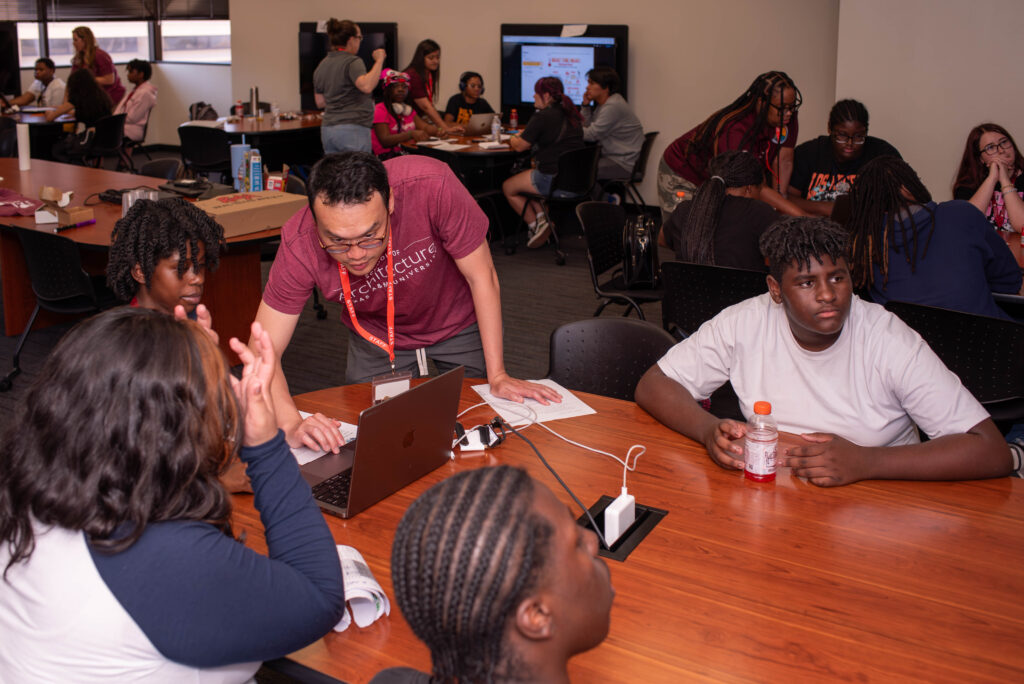
(Photo/Sarah Buschlen)
A group of 24 incoming 10th, 11th, and 12th-grade high schoolers, chosen from a particularly disaster-prone area in coastal East Texas near the Louisiana border, were the first cohort of campers to arrive on campus on July 8, 2024. They lived in student housing while participating in disaster simulations, public health workshops, urban planning exercises and classes that balanced theoretical learning and practical applications throughout the week.
In addition to tours of places like Kyle Field, where campers learned about emergency management on a large scale, they attended a Texas A&M Engineering Extension Service firefighting demonstration to learn about firefighter training and met with emergency managers from local cities, A&M and the county to learn about how local emergency operations function.
“At first, I wasn’t really considering science as a major, but after the camp, I realized that climate change is a big issue and maybe I should help address it during college,” said Aaron Miller, 16, from West Orange,Texas.
Building connections
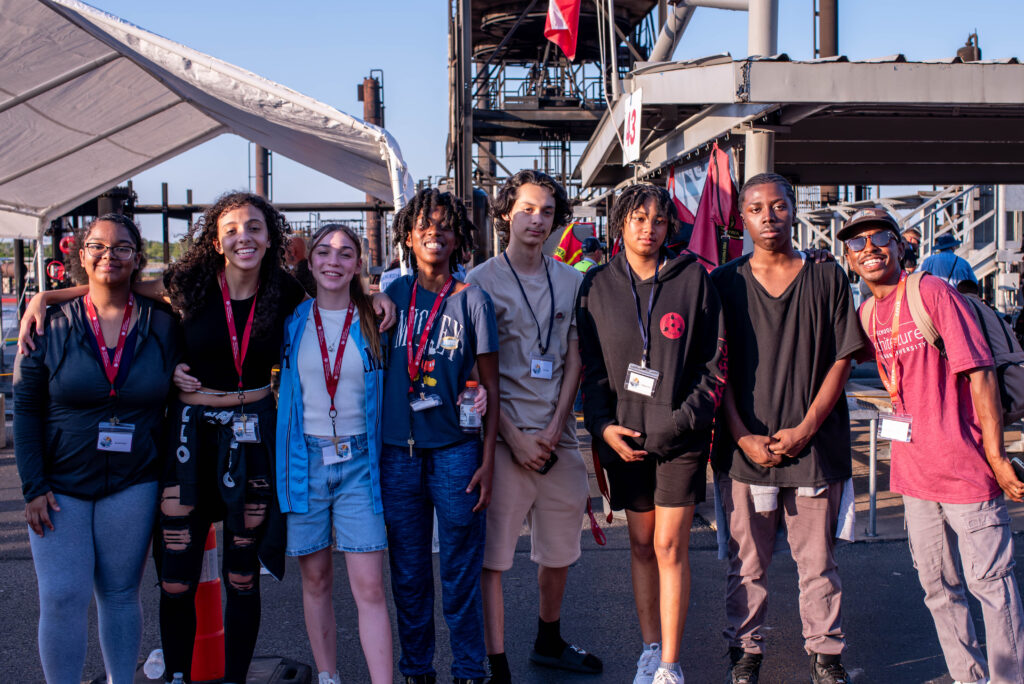
(Photo/Sarah Buschlen)
Meyer said she was thrilled to see the students’ reactions to the firefighter demonstration, noting that they naturally started talking about living near industrial plants.
“They immediately knew how these demonstrations related to the safety of their community at home,” she said.
Learning about the training emergency workers go through was illuminating to at least one camper, who said she had been considering a career in firefighting.
“It was personally my favorite highlight of the whole week,” said Megan Lee, 15. “I learned there are a lot of different ways fires can start, and you have to really be prepared for anything – it’s a really scary job.”
Throughout the week, students began asking professionals specific questions about what training they would need to do for these types of careers.
“I could tell they were beginning to see themselves in these positions,” said Meyer.
The campers also attended a research showcase by urban and regional sciences doctoral student Zhenhang Cai, which showcased virtual reality simulations of air pollution and flooding in Beaumont, Texas. During the session, high school students at the camp explored six virtual reality scenarios using Oculus 2 virtual reality goggles and via a large projector.
Cai said this is the first time she has shared her Beaumont VR project with high school students.
“(I could) feel their great interest and curiosity in the high technology and immersive interactions,” said Cai, excitedly.
She said the students were most interested in the high-flood and air pollution scenarios and commented that the simulation made them feel like they were in Beaumont.
Cai said she hopes her project can influence students’ undergraduate path selection, especially those interested in urban planning, landscape architecture, architecture, or engineering.
Measuring success
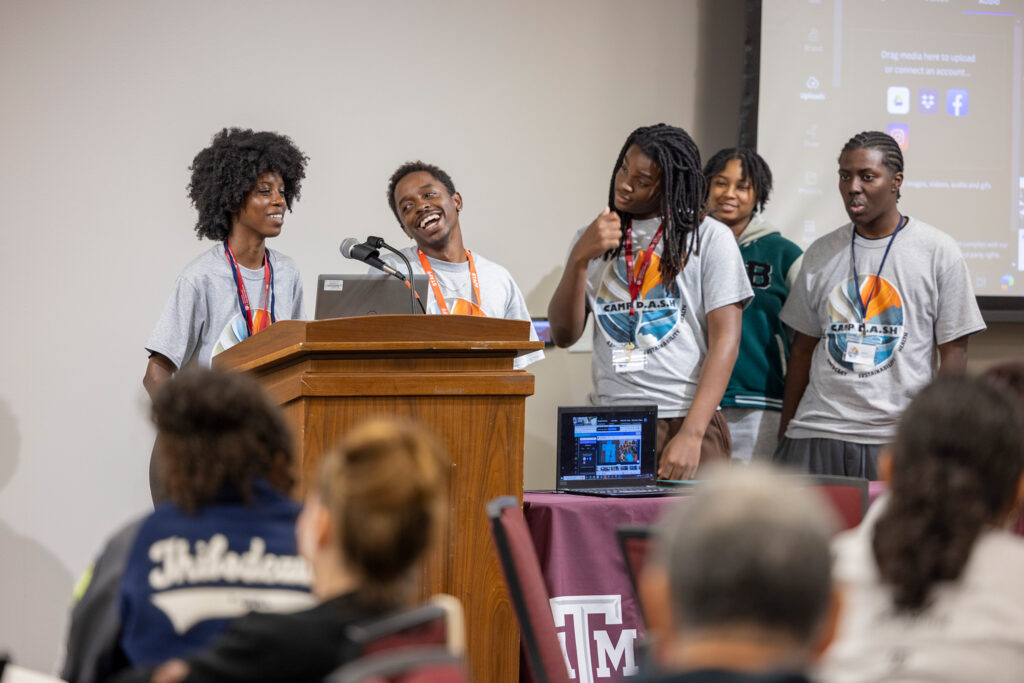
(Photo/John Peters)
While the first camp cohort is done, Meyer will follow up with campers in the coming years to determine if they pursue college or careers related to disaster management.
The camp is funded for the next two summers, supported by a grant from the National Academies of Sciences, Engineering, and Medicine’s Gulf Research Program, Nonprofit partner Charity Productions. Texas Sea Grant, Texas A&M Emergency Management, the Department of Landscape Architecture and Urban Planning, the School of Public Health, and the School of Architecture also sponsored this first year of the camp. The leadership team hopes the camp becomes a standard summer offering at Texas A&M.
Charity Productions collaborates on research projects with local governments in Texas and nationwide, as well as with non-profit organizations, NGOs, and public universities. These projects focus on public health, safety, housing, education, disaster preparedness, and civic engagement. CP addresses social issues, education, youth services, civic participation, job readiness, and law enforcement.
Texas A&M University has a longstanding formal relationship with Charity Productions, working together on community-based initiatives to address unmet needs. They also collaborate on research involving Texas A&M faculty and students.
For more information on Camp DASH, Michelle Meyer can be contacted at mmeyer@arch.tamu.edu.

